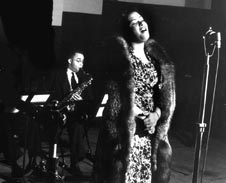Winners of the 7th Annual Writer's Digest Short Short Story Competition were listed in the June 2007 issue of Writer's Digest. Click here for a full list of winners.
-->
The Writer's Digest 11th Annual Short Short Story Competition
We're looking for fiction that's bold, brilliant...but brief. Send us your best in 1,500 words or fewer.
But don't be too long about it—the deadline is Thursday, December 1, 2010.
PRIZES
First Place: $3,000 and a trip to the Writer's Digest Conference in New York City
Second Place: $1,500
Third Place: $500
Fourth Through Tenth Place: $100
Eleventh Through Twenty-Fifth Place: $50 gift certificate for Writer's Digest Books
* The names and story titles of the First-through Tenth-Place winners will be printed in the May/June 2011 Writer's Digest, and winners will receive the 2011 Novel & Short Story Writer's Market and Agents, Editors, and You: The Insider's Guide to Getting Your Book Published. Plus, all First through 25th place winners will receive a free copy of the 11th Annual Writer's Digest Short Short Story Competition Collection.

The Rules
1. The competition is open to manuscripts of 1,500 words or fewer. Entries outside the word limitation will be disqualified. For entries submitted via regular mail, type the word count on the first page of your entry along with your name, address, phone number and email address. No refunds will be issued for disqualified entries.
2. The entry fee is $20 per manuscript. You may enter as many manuscripts as you wish. If you are submitting your entry via regular mail, you may send one check (in U.S. funds) and one entry form for all entries. We accept checks or money orders, Visa and Mastercard for all entries submitted online or via regular mail. There will be a $10 charge for all returned checks or declined credit cards. Credit cards will be charged within 90 days of the contest deadline. Charges will appear on your statement as “F+W Contests.”
3. All entries must be in English, original, unpublished, and not submitted or accepted elsewhere at the time of submission. Writer's Digest reserves one-time publication rights to the 1st- through 25th-place winning entries to be published in a Writer's Digest publication.
4. If you are submitting your entry via regular mail, all entries must be typewritten and double-spaced on one side of 8-1/2 x 11 or A4 white paper. Manuscripts will not be returned. Entries must be stapled.
5. Entries must be postmarked by December 1, 2010.
6. Winners will be notified by February 14, 2011. If you have not been contacted by this date, you may assume that your entry is not a finalist and may be marketed elsewhere.
7. Enclose a self-addressed, stamped postcard with your entry if you want to be notified of its receipt. We cannot notify you personally of your story's status before the winners are announced. If entering online, you will receive a confirmation email for each entry you submit.
8. Winners' names will appear in the May/June 2011 issue of Writer's Digest magazine. Afterwards, their names and story titles will be posted at www.writersdigest.com.
9. The following are not permitted to enter the competition: employees of F+W Media, Inc., and their immediate families and Writer's Digest contributing editors and correspondents as listed on the masthead.

FAQ
Q: Is it okay to have illustration pictures on the cover?
A: Please send the text only
Q: If there is a word count, how many words per page am I allowed?
No preference
Q: How large of print is allowed?
No preference
Q: Are pen names allowed?
Pen names are fine. Write your pen name on all forms etc. so there is no mistakes on credits. Please be advised that we only need your real name if you are chosen as a winner (in order to issue prizes).
Q: What if I am not a U.S. resident?
WD writing competitions are open to non-U.S. residents as well. Please refer to the entry form and guidelines. All entry fees are due in U.S. Dollars.
Q: Is there an age limit for entrants?
No
Q: What if I wanted to submit only part of my novel into the competition ( to stay with in the maximum number of words)?
If you submit a portion of a novel please understand that it will be judged as a complete story, not part of another work, so it needs to be a complete story in and of itself.
Q: When will winners be notified?
Top Award Winners will be notified by mail before February 14, 2011. The top 10 winners will be listed in the May/June 2011 issue of Writer's Digest. The top 25 winners will be listed in the 11th Annual Writer's Digest Short Short Story Competition Collection and at www.writersdigest.com after the June issue is published.
Q: What are the word count requirements?
The competition is open to manuscripts 1,500 words or fewer.
Q: How do I order books published by F+W Media?
www.fwbookstore.com/category/writers-digest
Q: How do I subscribe to Writer's Digest?
visit www.writersdigest.com and click on the link
Q: Are there other writing competitions?
Yes! Visit www.writersdigest.com/competitions for other competitions for writers
Privacy Promise
Occasionally we make portions of our customer list available to other companies so they may contact you about products and services that may be of interest to you. If you prefer we withhold your name, simply send a note with your name, address and the competition name to: List Manager, F+W Media, Inc., 4700 East Galbraith Road, Cincinnati, OH 45236.
Writer's Digest Short Short Story Competition Online Entry Form
Writer's Digest Short Short Story Printable Entry Form





















